Maybe the real #ReadyPlayerOneMovie was the #GamerGate we made along the way.
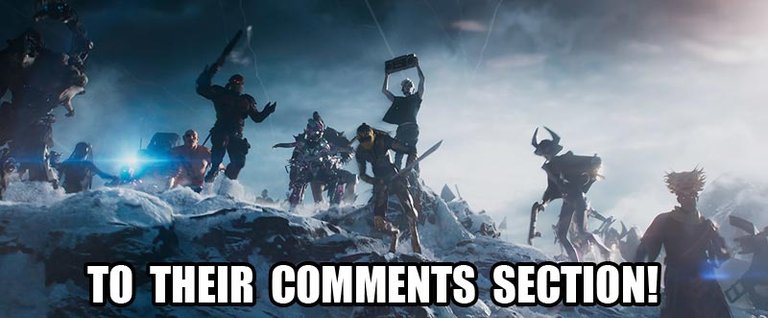
It's an insane amount of salt being thrown at this film by any variety of libprog identitarians who seem butthurt over the notion that a Guybrush Threepwood might be the lead in this film. Like Ernest Kline is somehow wrote the a loveletter to Mein Kampf instead of the 1980s.
The reasons from reaction is- histrionic & bizarre to say the least. As if a decidedly non-identitarian film somehow erases the identities of others. And the bizarre thing is, the people complaining not only don't understand the message of the film - but they rarely understand good fiction either.
Think about the complaints. Parzival/Wade Watts (Tye Sheridan) gets the girl in the end. This reverses the trend of the last few movies I'd seen that had utterly neutered protagonists. And the relationship between Parzeval & Art3mis follows a classic 'fairy tale'-esque feel, in the meantime Disney has been going out of its own way to subvert the fairy tales that made them the economic powerhouse that they are! I've seen complaints that they don't spend screentime dwelling on the racial & gender identities of the High Five, when the main theme of the film is this:
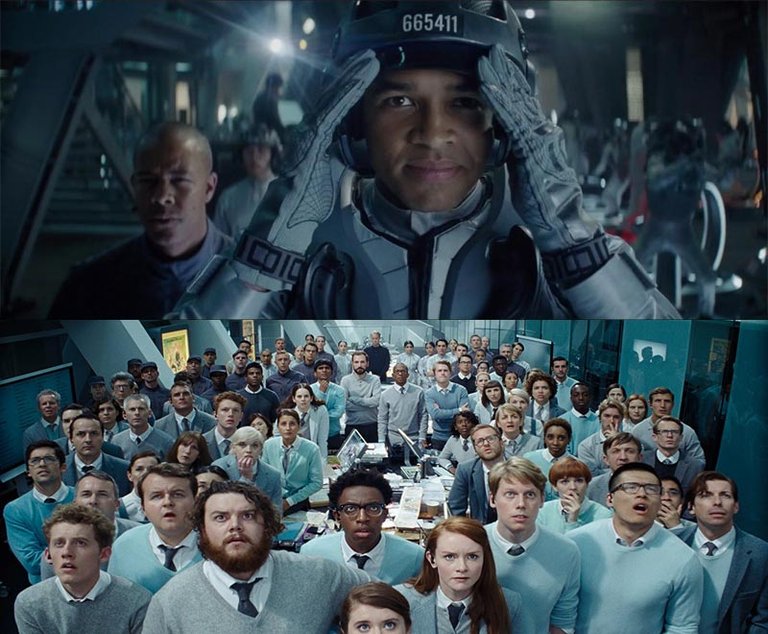
Pop Culture itself transcends racial, ethnic, sexual & economic identity. It always had a magical ability to do that. To ignore the Power of Myth over petty detailing is to fail to understand the themes & things that make us all human. The Sixxers & the Gunters all share that- they wouldn't be where they are in Halliday's Quest unless they had the talent to get involved in the world of The OASIS in a way that normies don't & identitarians can't. When the #PulpRev crowd say "Action First!" they're not saying "White Men Only!" They're saying Action First. A Plot of Action, Impact, Moral Peril, Romance, and Mystery.
The CHORFs at TOR want you to hate this movie as much as they do, because then maybe you'll go back into your sad little isolated closet, your little Loyalty Center box, and not come out until it's time to join them in denouncing something. Meaning we can honestly invoke Sargon's Law when they j'accuse GamerGate as having wanted to play "gatekeepers". F***er all we wanted to do was play some vidya. As long as the game was Fun (And I have Legit witnessed panels at GenCon where SJWs argued against games being fun!) we didn't care what the protag looked like. But hey, if one group can treat Identity Politics itself as a game that doesn't mean anything, than they win. We're seeing that now.
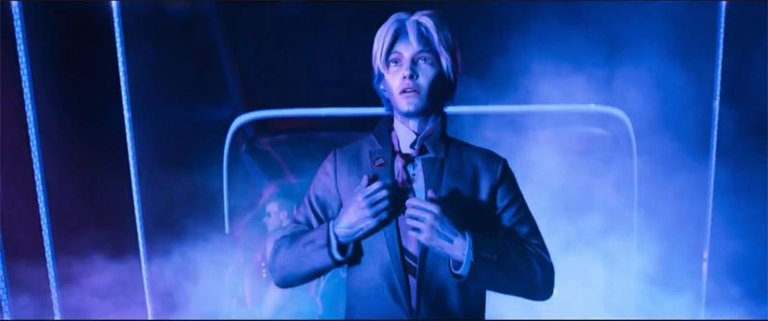
Book purists will be pleased that they did change so much from the original book. While the core plot & themes are kept, the puzzles seated in an encyclopedic knowledge of 80s pop culture aren't. They're shifted about, lengthy references from the book instead relegated to background references so the story & action itself can take center stage.
This wasn't a flaw, as so many insisted, in the original book. Those lengthy digressions on pop culture were much akin to- well, the entire book Appendix N by Jeffro Johnson. Johnson, much like Kline made it a point to tell you what made these things so innovative, as well as why they had an impact. And while the quest puzzles of the novel may have been- relatively unfilmable, the movie works new clever setpieces that exemplify what movies do best while still parading a series of pop culture references past the screen, warranting multiple viewings to catch them all. (I'm seriously thinking of hitting the theaters again.)
Notable is Ben Mendelsohn's Sorrento bearing a deliberate resemblance to Paul Gleason's Principal Richard Vernon from The Breakfast Club. They really did their best to make Sorrento into possibly one of the best villains in recent films, there's never a "we're not so different" from him, it's so much more they go out of their way in little ways to show (not tell) you what a dick he is (or at least, you can glean that from everyday behaviors he exhibits). The man cannot be douchier if he kicked a puppy. All you need to know what to think of him you can... put on a post-it note.
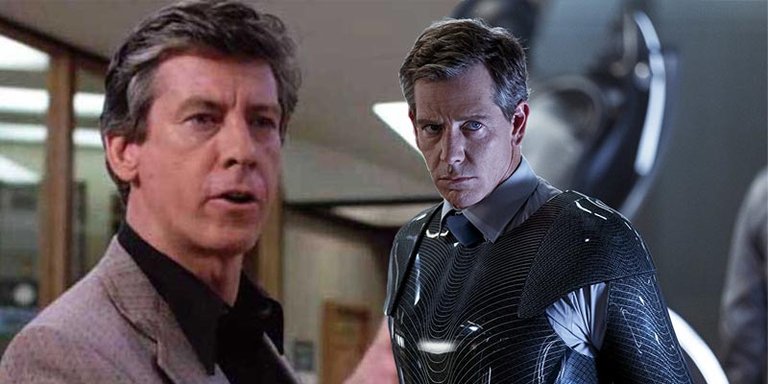
But once again, we're talking window dressing. Parzival might be the hero, but every hero needs a weird old wizard, the likes of which appear airbrushed upon many a van.
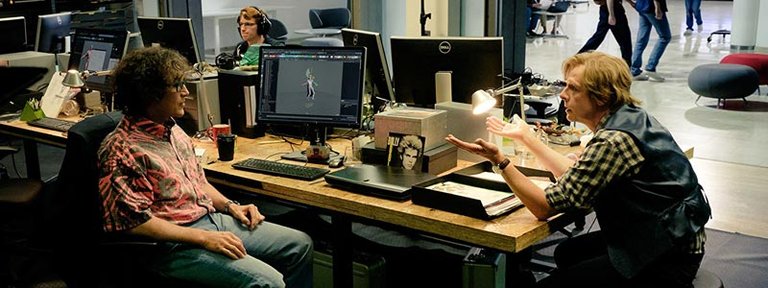
And here both the book and the movie shine, as The Quest that our Hero partakes in isn't (just) a hunt for a magical mcguffin, it's the act of trying to understand a Mentor/Wizard/Father Figure. The Quest is won by forming a relationship with Halliday, through his creation. Because that was the only way the poor guy could connect with anything.
Mark Rylance skillfully plays the agonized autistic savant Halliday. In video journal flashbacks, one is given evidence time and time again to see how an isolated, introverted and (from his upbringing) maladjusted person tries (unsuccessfully) to engage with others over a lifetime. It's not enough to play the expert guitar riffs from a Rush album or crack a Rubik's cube, Halliday could do all that all day long. But The Quest Anorak the Wizard sets The Hero Parzeval out to accomplish is- be true to your friends, ask the girl to a dance, explore all the worlds, including the real one. To carry on (and surpass) the previous generation's virtues, not fall to their vices.
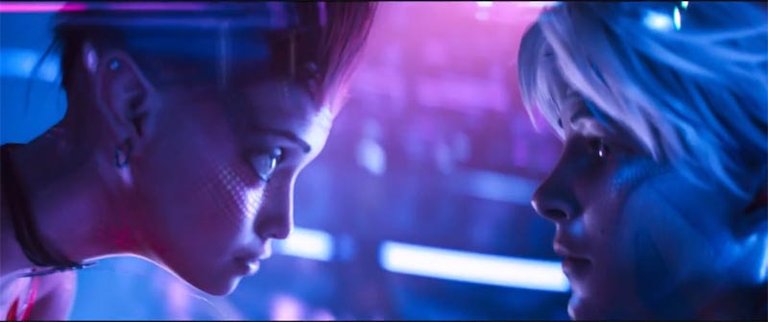
[Chorus of Singing Animals] "KISS THE GIRL!"
The grousers are people who can't understand the depth of even that simplistic messages of the book. They rapidly bog themselves in variations of mistrustful kneejerking to "corporate pandering" or complain that a teenaged male protagonist might not be a perfect, politically correct Hero. (The Dom beclowns himself dragging up talking points memo language such as the dread word "Problematic".) But Wade Watts is a better hero than many think. He isn't a Mary Sue, he's just somebody that understood another person, and made a friend. And part of the reason why we need those 5 Friends who will help adjust and define who we are is- because we also need an audience from time to time to applaud our efforts.
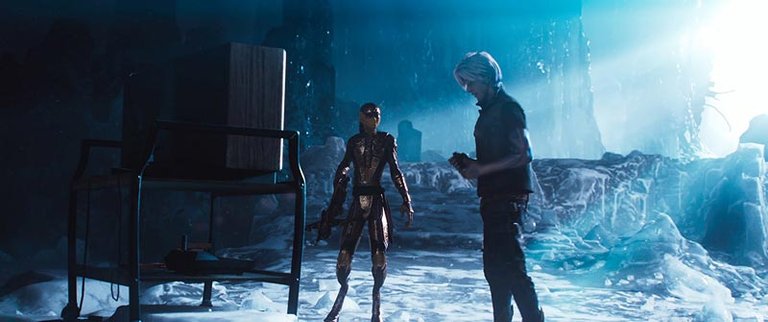
There's a telling moment in the film that ties it all together. A lone Sixxer is doing his job, testing a trap in the form of an Atari 2600. It's a scene at the end from the original book, but here in the movie, there're skillful additions. Shoto has the chance to kill the guy, who while Parzeval can't see his skin from their angle, is a black male. We see this guy though, and an entire team of support staff at IOI's offices can too. But Parzeval stops him because of what he can see. That hunched posture, the tight grip on the controller, the small shifting movement in the shoulders- Parzeval doesn't even see an IOI employee. An Enemy.
He sees a fellow Gamer. Someone who's been handed a cart and might not even know all that much about the game. Maybe he has someone over his shoulder, whispering advice or encouragement. But he is In the Zone. That pure moment where all that matters is the intimate connection between Player One and the game before him. And The Hero can have those flashes of insight, not only into themselves, but in others, and it's a reason why the victim-protagonists of the SJW identitarians lack so much. They hate and fear the thought of being stripped of those surface identities, possibly because there might be so little underneath. And they attack the notion of someone using pop culture to understand that pop culture, product placement and conspicuous consumption might not be the way to fill those voids.
Maybe that's why they always treat their Starbucks servers so rotten before snapping a photo of their meal to post to Instagram. Idunno, I don't even drink coffee.
Wow. You and I seem to have watched entirely different movies.